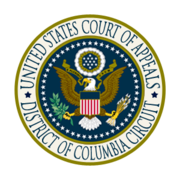Our website is made possible by displaying online advertisements to our visitors.
Please consider supporting us by disabling your ad blocker.
Mozilla Corp. v. FCC
| Mozilla v. FCC | |
|---|---|
 | |
| Court | United States Court of Appeals for the District of Columbia Circuit |
| Full case name | Mozilla Corporation v. Federal Communications Commission and United States of America |
| Argued | February 1 2019 |
| Decided | October 1 2019 |
| Citation | 940 F. 3d 1 |
| Holding | |
| The FCC has the authority to reclassify Internet services under the Communications Act of 1934, but does not have the authority to restrict state or local laws regulating Internet services. | |
| Court membership | |
| Judges sitting | Stephen F. Williams, Patricia Millett, Robert L. Wilkins |
| Case opinions | |
| Per curiam | |
| Concurrence | Millett |
| Concurrence | Wilkins |
| Concur/dissent | Williams |
| Part of a series about |
| Net neutrality |
|---|
| Topics and issues |
| By country or region |
Mozilla Corp. v. FCC, 940 F. 3d 1 (D.C. Cir., 2019) was a ruling the United States Court of Appeals for the District of Columbia Circuit in 2019 related to net neutrality in the United States. The case centered on the Federal Communications Commission (FCC)'s decision in 2017 to rollback its prior 2015 Open Internet Order, reclassifying Internet services as an information service rather than as a common carrier, deregulating principles of net neutrality that had been put in place with the 2015 order. The proposed rollback had been publicly criticized during the open period of discussion, and following the FCC's issuing of the rollback, several states and Internet companies sued the FCC. These cases were consolidated into the one led by the Mozilla Corporation.[1]
The Appeals Court ruled in favor of the FCC in October 2019, relying on the Supreme Court decision of National Cable & Telecommunications Ass'n v. Brand X Internet Services (2005) that the FCC has such authority to reclassify Internet services, and thus allowed the rollback. However, the Court ruled against the FCC in attempting to block state- and local-level laws that regulated the Internet, enabling states to pass net neutrality legislation.[1]
- ^ a b Mozilla Corp. v. Federal Communications Commission, 940 F. 3d 1 (D.C. Cir., 2019).
Previous Page Next Page


